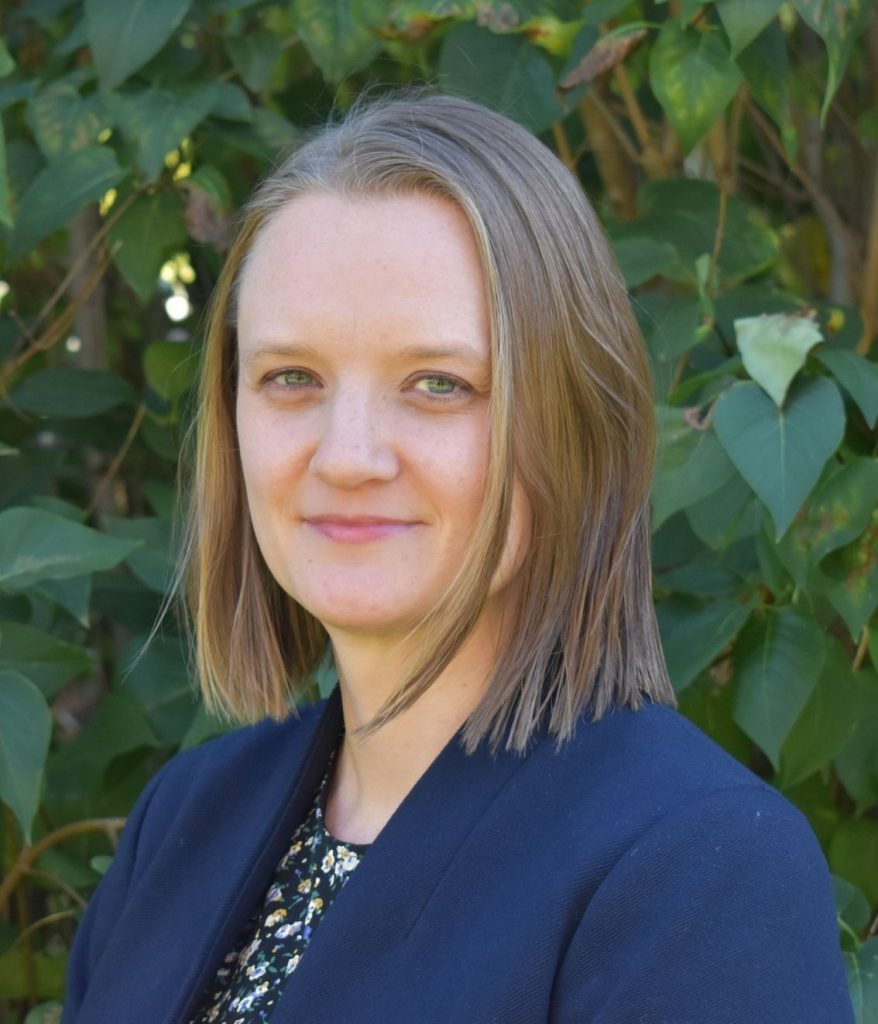About Sarah Smith
Sarah is a Programme Manager in the Foundation’s Peace and Security team, focusing on implementation of the Sustaining Peace agenda and the Youth, Peace and Security agenda.
Sarah brings 10 years of experience in policy research and advocacy, with a focus on enhancing the effectiveness of and strengthening inclusive practices within international peacebuilding. Sarah has served as Specialist on Youth, Peace and Security at the Folke Bernadotte Academy, a Swedish government agency, and as Programme Manager at the Dag Hammarskjöld Foundation. She has also worked for various think tanks in Washington, D.C.
Sarah holds a MSc in Peace and Conflict Studies from the Department of Peace and Conflict Research at Uppsala University, Sweden, and a Bachelor of Arts in International Relations from Rhodes College in the United States.
I felt completely out of my element at last year’s Game Summit Sweden for games developers (ForDevs). I’m certainly not a game developer. I’m not even a gamer. At the time, I had only recently started working with Investing and Partnering with Youth for Peace (IPYP) to engage the private sector in supporting and partnering with youth-led peacebuilding. But as I walked around the premises with the Sustainable Development Goals (SDGs) prominently displayed and the role of the games sector in advancing the SDGs highlighted throughout the event’s discussions, I was reminded that there are many actors who contribute to, or have the potential to contribute to, peace and development in their communities. Not all these actors call themselves peacebuilders. But their work mirrors peacebuilding in many ways.
As part of ForDevs 2024, Dag Hammarskjöld Foundation and UN Global Compact Sweden were invited by Dataspelsbranschen to organise a session on peacebuilding. During the session, Playing for Peace: Unlocking the Creative Power of Game Devs to Strengthen Young Peacebuilders, participants reflected on possible avenues for the games sector to support peace efforts. While there was a lot of interest in using their skills to positively contribute to peace and development across the world, many games developers expressed that they did not know how to go about doing this.
For me, the discussions highlighted several parallels with the work of the peacebuilding sector and opportunities for the games sector to contribute to global efforts to address factors driving violent conflict and to advance peace.
To continue to explore these parallels, and as part of our continued partnership with Dataspelsbranschen, the Foundation and IPYP will participate in I’ve been reflecting again on the themes that were highlighted during ForDevs 2024. As development assistance is declining globally, it is more important than ever to engage private sector actors that align with peacebuilding values. There is a real opportunity for the games industry to advance more peaceful, inclusive and just societies (as enshrined in SDG 16).
- Games and peacebuilding are both about storytelling. Participants highlighted that gamers love playing games because games allow them to create their own story. Peacebuilding is also very much about storytelling, about changing the narrative. In facilitating dialogue, we may rely on stories to highlight similarities, rather than differences, between groups. Storytelling can also be one of the most effective methods to advocate for inclusive peacebuilding at the global policy level. The peacebuilding community could learn a lot from the games sector in terms of how to most effectively and impactfully tell a story.
- Games and peacebuilding both facilitate joint action towards a common goal. Many games are about working together to defeat a common enemy, find the missing magic or travel to a faraway land. Through the game, players learn how to cooperate with others and build on each other’s strengths. Peacebuilding must also be based on coordination, joint learning and partnerships. What lessons could we learn from each other, in terms of what methods work well to promote cooperation?
- Games and peacebuilding can both create spaces for dialogue. Some 3 billion people across the globe – spanning different backgrounds – play video games. Conference participants highlighted the ability of games to bring people with different socioeconomic backgrounds, political ideologies, and even from different parties to a conflict, together. Gamers across the world connect through chat rooms and sharing their real-life experiences even as they are co-creating stories in the game. Dialogue is a core element of much peacebuilding work. How could peacebuilding use games or similar tools to facilitate this kind of dialogue across groups? What can games learn from real-life peacebuilding and dialogue experiences, to strengthen dialogue in their games?
Of course, not all games facilitate community, and there is also a need for the games industry to reflect on its role in exacerbating conflict. Chat rooms can be used as platforms to spread hate speech and disinformation. In 2023, a wave of online hate was directed towards SweetBaby Inc., a consultancy firm that supports games in developing inclusive and diverse stories. The games industry has been accused of funding arms manufacturers through licensing fees. Games have also been used by militaries as a recruitment tool.
But it was encouraging to hear Kim Belair, the CEO of SweetBaby Inc. predict that in 20+ years the games that will have survived from today will be games where we work together and build together for a better world. Businesses that will endure will be those that work and build together with their consumers, towards a more peaceful world.
The Foundation and IPYP look forward to continuing to explore with the games sector what its role as a peacebuilder could look like. If you consider yourself a peacebuilder and/or a gamer, we would welcome your reflections and ideas on how to strengthen the synergies between these two sectors going forward.

